-
How Do Intraocular Lenses Work?
 Intraocular lenses (IOLs), or intraocular implants, are lenses that an ophthalmologist near Chicago can implant in a person’s eyes. Patients with cataracts may be good candidates for IOLs. During cataract surgery , the ophthalmologist removes the cloudy lens of the affected eye and replaces it with the artificial lens to restore proper vision.
Intraocular lenses (IOLs), or intraocular implants, are lenses that an ophthalmologist near Chicago can implant in a person’s eyes. Patients with cataracts may be good candidates for IOLs. During cataract surgery , the ophthalmologist removes the cloudy lens of the affected eye and replaces it with the artificial lens to restore proper vision.Function of IOLs
Cataracts are areas of the eye’s natural lens that become cloudy and obscure vision. They are quite common among older adults. Since a cataract is not a growth that can be removed, it is necessary to remove the entire lens of the eye. The artificial IOLs that are inserted in place of the natural lens work in the same way. Light enters the eye through the cornea. The lens focuses the light on the retina, which allows the optic nerve to carry the images to the brain. Unlike the eye’s natural lens; however, IOLs are customizable. Before the ophthalmologist performs the eye surgery, he or she determines the appropriate prescription of IOL for the individual patient.
Candidates for IOLs
Only an ophthalmologist can determine if someone is a good candidate for cataract surgery. Since cataracts can develop for many years without causing any symptoms, most people will not necessarily have to have the surgery right away. Generally, cataract surgery may be recommended for patients who are over the age of 40 and who are experiencing poor night vision, sensitivity to light, blurry vision, or other visual disturbances.
Procedure for IOL Placement
About a week before the surgery is scheduled, the ophthalmologist will perform a non-invasive test to measure the size and shape of the eye. He or she uses this information to select the right IOL for the patient. The patient may be asked to stop taking certain medications for a week prior to the procedure. Antibiotic eye drops may also be applied for a few days to reduce the chances of an infection. The surgery itself typically takes an hour or less to perform. The ophthalmologist will place eye drops to dilate the eyes and then apply a local anesthetic. Then, the ophthalmologist can remove the cloudy lens using an ultrasound probe to break it up. Finally, the eye doctor places the IOL into the lens capsule.
-
Spotting the Symptoms of Pink Eye
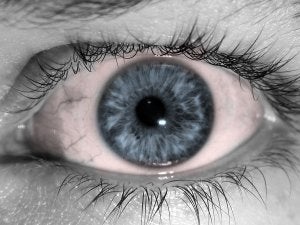 Pink eye is a contagious eye infection that is usually not a cause for alarm. However, since there are other eye infections that may lead to permanent vision loss, it’s always advisable for patients to consult an eye doctor in Chicago right away if any unusual symptoms develop. An optician may diagnose a patient with pink eye, also known as conjunctivitis, if he or she develops watery, itchy eyes along with redness in the whites of the eyes. Patients may also have swollen eyelids, thick discharge, and excessive tearing. Additionally, patients might inform the ophthalmologist that they suffer from tenderness and swelling of the areas just in front of the ears.
Pink eye is a contagious eye infection that is usually not a cause for alarm. However, since there are other eye infections that may lead to permanent vision loss, it’s always advisable for patients to consult an eye doctor in Chicago right away if any unusual symptoms develop. An optician may diagnose a patient with pink eye, also known as conjunctivitis, if he or she develops watery, itchy eyes along with redness in the whites of the eyes. Patients may also have swollen eyelids, thick discharge, and excessive tearing. Additionally, patients might inform the ophthalmologist that they suffer from tenderness and swelling of the areas just in front of the ears.It usually takes about five to seven days for these symptoms to resolve. However, some patients may develop chronic symptoms. Generally, patients who wear contact lenses, have vision in just one eye, or have a suppressed immune system are at an increased risk of developing serious cases of pink eye. If the infection was caused by bacteria, the ophthalmologist may prescribe an antibiotic ointment. For bacterial or viral pink eye, one eye care strategy is to place a cold, wet washcloth over the eyes. Patient should be very careful to avoid letting anyone else come into contact with an infected washcloth.
-
Protect Your Eyes with Healthy Habits
To protect your healthy eyes, schedule an exam every year with an eye doctor. Your ophthalmologist can detect vision problems early on and provide appropriate treatments. An ophthalmologist near Chicago can also recommend healthy eye care habits to preserve your vision , some of which are outlined in this video.
This video features actress and cookbook author Deirdre Hall, who explains that age-related macular degeneration (AMD) runs in her family. She gets her eyes checked by an optician each year and eats a healthy diet filled with plenty of vibrantly colored fruits and vegetables. This video also explains why lifestyle choices that can improve your cardiovascular health are also healthy for your eyes.
-
Diagnosing and Treating Diabetic Retinopathy
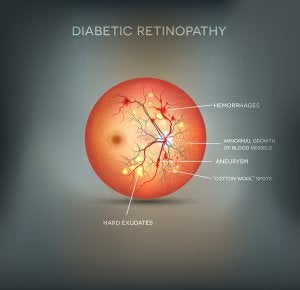 Diabetes is a serious disease that can lead to complications that affect many different parts of the body, including the eyes. This is one reason why it’s essential for patients with diabetes to schedule regular exams with an eye doctor. An ophthalmologist near Chicago can detect diabetic retinopathy when it is still in its early stages. Diabetic retinopathy is a condition that involves damage to the blood vessels of the eyes. Over time, patients may suffer from permanent vision loss.
Diabetes is a serious disease that can lead to complications that affect many different parts of the body, including the eyes. This is one reason why it’s essential for patients with diabetes to schedule regular exams with an eye doctor. An ophthalmologist near Chicago can detect diabetic retinopathy when it is still in its early stages. Diabetic retinopathy is a condition that involves damage to the blood vessels of the eyes. Over time, patients may suffer from permanent vision loss.Identifying the Symptoms
When diagnosing diabetic retinopathy, the ophthalmologist will ask the patient about his or her symptoms. Although this condition does not usually cause symptoms in its early stages, patients may eventually notice blurry vision, spots or floaters in the visual field, dark areas in the visual field, or vision loss. Over time, patients develop an increasing reliance on vision correction, such as eye glasses.
Conducting Diagnostic Exams
In addition to assessing the patient’s symptoms, the ophthalmologist will conduct a comprehensive eye exam. This includes visual acuity measurements to assess whether the central vision is affected. A refraction exam lets the ophthalmologist know if the patient’s prescription has changed. The eye doctor will measure the intraocular pressure. Additionally, the ophthalmologist will conduct a dilated eye exam to examine the structures of the eyes for abnormalities. These can include abnormal blood vessels, swelling or deposits in the retina, bleeding in the vitreous, or the growth of scar tissue and new blood vessels.
Managing Blood Sugar Levels
One of the goals of treatment for patients with diabetic retinopathy involves slowing or halting the progression of vision loss. To accomplish this, it’s necessary for patients to manage their blood sugar levels properly. A primary care physician can help patients manage their disease through prescription medications, dietary guidelines, and exercise recommendations.
Undergoing Eye Surgery
If diabetic retinopathy is already in the advanced stages, patients may require eye surgery. One option is focal laser treatments, also known as photocoagulation. This procedure involves targeting the abnormal, leaky blood vessels with a laser to seal them. Scatter laser treatments, also known as hand retinal photocoagulation, is similar; however, this procedure can shrink the abnormal blood vessels. A third option is a vitrectomy. For a vitrectomy, the ophthalmologist makes a tiny incision, through which he or she can remove accumulated blood and scar tissue.
-
Tips for Fighting Dry Eye
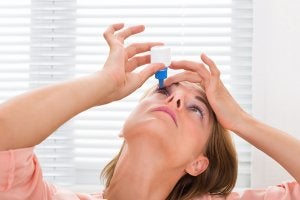 Dry eye syndrome is one of the most common causes of eye discomfort. To manage your dry eye symptoms, you can visit an eye doctor or ophthalmologist for dry eye treatment in Chicago, and take some steps at home to prevent dry eyes. Here are some helpful tips for fighting dry eye symptoms this winter.
Dry eye syndrome is one of the most common causes of eye discomfort. To manage your dry eye symptoms, you can visit an eye doctor or ophthalmologist for dry eye treatment in Chicago, and take some steps at home to prevent dry eyes. Here are some helpful tips for fighting dry eye symptoms this winter.Use Eye Drops Regularly
The first and simplest line of defense against dry eyes is using eye drops regularly. Your eye doctor or ophthalmologist can recommend the best type of artificial tears for your condition. Artificial tears will keep your eyes moist, and combat other dry eye symptoms like itchiness, watery eyes, and irritated or sore eyes. You can use artificial tears as often as necessary to provide relief of dry eye symptoms. If your symptoms don’t improve, your eye doctor can prescribe a different form of dry eye treatment.
Avoid Spending Time in Dry Air
Dry air will further irritate your dry eyes, and you should avoid sitting in front of a heating or cooling vent, fan, or space heater. Heaters remove moisture from the air and exacerbate or cause dry eyes, but you can counteract this effect by using a humidifier in your home. A humidifier will replace lost moisture and make your eyes feel much more comfortable. If you don’t want to purchase a humidifier, you can place a pan of water on top of your radiator for a similar effect.
Protect Your Eyes from Wind, Cold, and Heat
Wind and excessively cold or warm weather will dry out your eyes. If you’re planning on spending more than 15 minutes outdoors, you should be sure to protect your eyes. You can wear sunglasses and a hat to prevent cold wind and sun from irritating your eyes. If you wear prescription eyeglasses, you may want to ask your eye doctor about prescription sunglasses for further UV protection. You should also protect your eyes from smoke from fires and cigarettes, as smoke will also dry out your eyes.
-
Is LASIK Right for You?
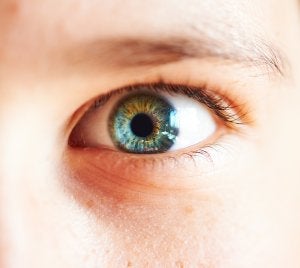 If you’re considering LASIK surgery in Chicago , you should visit an ophthalmologist with extensive experience in refractive surgery for a LASIK consultation. LASIK eye surgery can offer significant vision correction, and reduce or eliminate your need for prescription eyeglasses or contact lenses. An ophthalmologist can evaluate your vision and eye health to determine whether you are a good candidate for LASIK.
If you’re considering LASIK surgery in Chicago , you should visit an ophthalmologist with extensive experience in refractive surgery for a LASIK consultation. LASIK eye surgery can offer significant vision correction, and reduce or eliminate your need for prescription eyeglasses or contact lenses. An ophthalmologist can evaluate your vision and eye health to determine whether you are a good candidate for LASIK.The best candidates for LASIK surgery are those who are in good overall health, good eye health, and who don’t have any eye diseases or conditions. Certain eye problems can increase your risk of LASIK complications, or may prevent your eyes from healing completely. If you have poor vision that has been stable for at least one year prior to your LASIK consultation, and you are in good general health, you are a good candidate for LASIK surgery.
LASIK surgery is successful in providing vision correction for severe degrees of nearsightedness, astigmatism, and moderate degrees of farsightedness. If your level of vision correction isn’t ideal after your refractive surgery, you can undergo another LASIK procedure. LASIK surgery is minimally invasive, and the procedure takes only about 30 minutes.
-
What Causes Glaucoma to Develop?
Glaucoma causes a buildup of pressure inside of the eye that can result in worsening damage to the eye’s optic nerve over time. Because many people don’t experience any symptoms of glaucoma, it’s crucial to visit your eye doctor or ophthalmologist in Chicago regularly for eye exams and eye care to spot this condition as early as possible. If you have a family history of glaucoma and are over 40 years old, you should visit your eye doctor at least once a year for a glaucoma screening.
Watch this video for some valuable information about what causes glaucoma to develop. Glaucoma typically develops due to genetics and age.
-
Eye Complications of Diabetes
 If you suffer from diabetes, it’s crucial that you visit your eye doctor in Chicago regularly for eye exams and eye care. Diabetes increases your risk of developing dangerous and permanent eye complications, and diabetes complications can even result in blindness. Here is a look at some common eye complications of diabetes.
If you suffer from diabetes, it’s crucial that you visit your eye doctor in Chicago regularly for eye exams and eye care. Diabetes increases your risk of developing dangerous and permanent eye complications, and diabetes complications can even result in blindness. Here is a look at some common eye complications of diabetes.Glaucoma
Once you have been diagnosed with diabetes, your risk of developing glaucoma increases by 40%. Your risk continues to increase with age, and depending upon how long you have had diabetes. Glaucoma is caused by a build up of pressure in the eyes, which causes the fluid in the eye to drain slowly and build up in the anterior chamber. This pressure can irritate or damage the blood vessels in the eye. Over time, the blood vessels become less effective at carrying blood to the retina and optic nerve, and this blood vessel damage may lead to vision loss. Your ophthalmologist may recommend medication or eye surgery to treat glaucoma.
Cataracts
People with diabetes are 60% more likely to develop cataracts than people who don’t have diabetes. If you have diabetes, you are also more likely to develop cataracts at a much younger age, and the condition may progress faster. Cataracts cause the lens of the eye to become clouded, resulting in poor vision, light sensitivity, and progressive vision problems. Your eye doctor may first recommend conservative cataract treatment via eyeglasses or contact lenses. If your cataracts are severe or aren’t remedied by vision correction, your eye doctor will refer you to a cataract surgeon for cataract surgery.
Diabetic Retinopathy
Diabetic retinopathy is one of the most serious eye complications resulting from diabetes. The condition includes two different forms of eye problems: nonproliferative and proliferative retinopathy. Nonproliferative retinopathy causes the capillaries in the back of the eye to swell, and the blood vessels become blocked as a result. Proliferative retinopathy occurs when an eye doctor doesn’t treat nonproliferative retinopathy and the condition progresses. Proliferative retinopathy causes progressively worse damage to the blood vessels, eventually leading to retinal detachment or blindness.
-
Taking Care of Your Eyes In The Winter
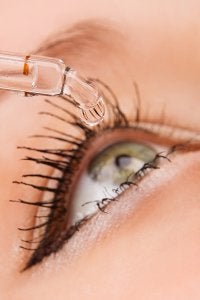 Due to dry, cold winter air and the use of indoor heating, people are much more likely to seek dry eye treatment in Chicago during the winter. Dry eye symptoms can be uncomfortable, and can prevent you from participating in activities that you enjoy. Here are a few ways that you can protect your eyes in the winter and reduce your need for dry eye treatment.
Due to dry, cold winter air and the use of indoor heating, people are much more likely to seek dry eye treatment in Chicago during the winter. Dry eye symptoms can be uncomfortable, and can prevent you from participating in activities that you enjoy. Here are a few ways that you can protect your eyes in the winter and reduce your need for dry eye treatment.Don’t Sit Directly In Front of Heating Vents
The hot, dry air from heating vents or space heaters can severely irritate your eyes, particularly if you wear contact lenses. To avoid suffering from dry eyes, try not to sit directly in front of a space heater or the heating vents in your home. You can also redirect the heating vents in your car so that they aren’t blowing directly on your face. If you do wear contact lenses, you may want to switch to eyeglasses when you’re at home with the heater on.
Protect Your Eyes When You Go Outside
Cold air can also make your eyes irritated and dry, and cold wind can further exacerbate dry eye symptoms. If you’re going to be outside for a long period of time, wear sunglasses or eyeglasses to protect your eyes from the cold air and wind. Eye drops are an effective and affordable dry eye treatment that can restore moisture to your eyes, and significantly reduce redness, itching, and irritation that may be caused by cold air and wind.
Buy a Humidifier for Your Home
If you run a heater regularly in your home, it will reduce the moisture of your indoor air. This can make your eyes irritated, itchy, and dry. To restore moisture to your indoor air, you can buy a humidifier. Humidifiers release water vapor or steam into the air to make it more humid. You can also install a central humidifier in your home’s heating unit to humidify your entire house and combat dry air and dry, itchy eyes.
-
Types of Diabetic Retinopathy
 Diabetic retinopathy is one of the many health complications that can arise amongst people who suffer from diabetes. If you are diabetic, you should visit your eye doctor regularly for eye care in Chicago to reduce your risk of developing diabetic retinopathy. There are two types of diabetic retinopathy: non-proliferative diabetic retinopathy, and proliferative diabetic retinopathy.
Diabetic retinopathy is one of the many health complications that can arise amongst people who suffer from diabetes. If you are diabetic, you should visit your eye doctor regularly for eye care in Chicago to reduce your risk of developing diabetic retinopathy. There are two types of diabetic retinopathy: non-proliferative diabetic retinopathy, and proliferative diabetic retinopathy.Non-proliferative diabetic retinopathy refers to the early stages of diabetic retinopathy. In its earliest stages, patients will experience few, if any, symptoms. Non-proliferative diabetic retinopathy occurs when the blood vessels in the retina become damaged as a result of prolonged increases in a person’s blood sugar levels. Increased blood sugar causes the blood vessels to weaken and develop small bulges on their walls. These bulges are called microaneurisms, which can leak fluid into the retina and cause macular swelling.
If you do not seek treatment from an eye doctor at an optical center during the early stages of diabetic retinopathy, the condition will progress to proliferative diabetic retinopathy. In this stage, the retina becomes deprived of oxygen, and may develop scar tissue or detach. Without treatment from an ophthalmologist, proliferative diabetic retinopathy can cause blurry vision and complete vision loss.
